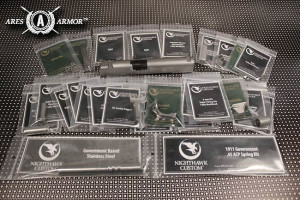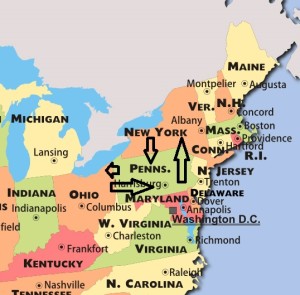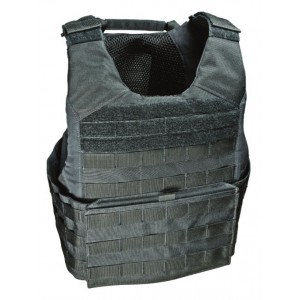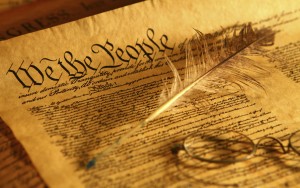Last week, United States Representative Mike Honda (D-CA) introduced three bills. As we’ve chosen to discuss them, you’ve probably guessed that they would have an effect on the laws of firearms. While the text of each bill is not available at present, pertinent information about each bill has been provided under the “Text” section on Congress.gov. The information currently available has been set forth in full below.
H.R. 376 To prohibit the sale, offering for sale, manufacture for sale, distribution in commerce, or import into the United States of certain firearm receiver castings or blanks, assault weapon parts kits, and machine gun parts kits and to prohibit the marketing or advertising of such castings or blanks and kits on any medium of electronic communications.
H.R. 377 To amend chapter 44 of title 18, United States Code, to require homemade firearms to have serial numbers, and for other purposes.
H.R. 378 To prohibit the purchase, ownership, or possession of enhanced body armor by civilians, with exceptions.
Much like other proposed bills [see Proposed Bill Banning Human Silhouette Targets: Constitutional?], we’ve received calls simply asking “Can they do that?” Quite frankly, while there have been some clear cut examples of governmental entities acting beyond the scope of their legal authority (or completely within the scope of their authority), many of these inquiries cannot be addressed with a simple “yes” or “no” answer.
Honda has asserted that “[t]hese bills are sensible, reasonable measures to limit the damage that can be inflicted by guns and those who mean harm with them.” Unfortunately, the mere fact that an elected official has a strongly held belief as to whether a law is “reasonable” or “sensible” (regardless of how honest or well-intentioned that belief may be) does not in and of itself provide the government with legal authority to act.
So back to the question at hand. Can they do it?

Rudius 80% 1911 Frame retrieved from/for sale by http://aresarmor.com/store/Category/1911 on 1-21-15.
H.R. 376 & 377
Let’s discuss 376 and 377 first. Building your own firearm for personal use (“home builds”) using 80% lower receivers have been incredibly popular lately. These bills seemingly aim to end the craze.
We briefly discussed the present state of the law with regards to home builds in our previous post, “Are Firearms without Serial Numbers Illegal?”. Under the laws of Pennsylvania and the federal government, home builds can be perfectly legal. There are some strict rules that must be followed in order to stay within the bounds of the law, but it is entirely possible, and many claim it is not very difficult. Generally, an individual may build his or her own firearm for personal use so long as they do not sell or transfer it. In doing so, the builder is not obligated to include a serial number, pass a background check, or file any paperwork with the Bureau of Alcohol, Tobacco, Firearms and Explosives (BATFE). In a recent ruling, BATFE decided that an individual must use his or her own equipment for their home build. More specifically, it held that “a business (including an association or society) may not avoid the manufacturing license, marking, and recordkeeping requirements of the [Gun Control Act] GCA by allowing persons to perform manufacturing processes on blanks or incomplete firearms (including frames or receivers) using machinery, tools or equipment under its dominion and control where that business controls access to, and use of, such machinery, tools, or equipment.” Click here to see the ruling in full.

Rudius 1911 High End Parts Kit retrieved from/for sale by http://aresarmor.com/store/Category/1911 on 1-21-15.
Another important point is that in order to build firearms regulated under the National Firearms Act (NFA), the builder must fill out a Form 1 with BATFE and follow all requirements involved. As a result, even if solely for personal use, an individual home building an NFA-regulated firearm will still be subject to requirements regarding markings, paperwork and background checks.
Essentially, 376 and 377 would place restrictions on those who presently manufacture the parts individuals may ultimately use for their home build.
From the text available, 376 would apply to “certain firearm receiver castings or blanks, assault weapon parts kits, and machinegun parts kits,” and would prohibit:
- Sale
- Offering for sale
- Distribution in commerce
- Import into the U.S.
- Marketing or advertising through any medium of electronic communications
Because the text presently available qualifies the ban using the word “certain,” it is unclear as to which items would be covered under the law. Details will hopefully come later.
Why all of this talk about sales, commerce and the like? Congress only has the authority to act under its enumerated powers, or to carry out actions “necessary and proper” in the exercise of the federal government’s powers. In practice, the Court has interpreted “necessary and proper” to mean appropriate or convenient. That is, Congress has the authority to take action, even if not directly under an enumerated power, so long as the action is appropriate in facilitating the fulfillment of any valid action for which the federal government has authority.
Before the Gun Control Act, Congress was somewhat skeptical as to its ability to regulate firearms at the federal level. The NFA, while it only applied to certain firearms, was enacted under the Congress’ power to lay and collect taxes. At the time, Congress’ believed this was most directly related to its authority to control firearms. Today, we still see the various tax elements interwoven in the procedures required with regards to firearms regulated by the NFA.
A few decades later, Congress enacted the GCA which is where many of the federal gun laws we know today were born. Its basis this time, however, was the commerce clause. The commerce clause of Article 1, Section 8 of the United States Constitution grants Congress the authority to “regulate commerce with foreign nations, and among the several states, and with the Indian tribes.” Very early on, the Court determined that commerce includes “every species of commercial intercourse” and “among the several states” simply means more than one. Gibbons v. Ogden, 22 U.S. 1 (1824).
This explains why provisions of the GCA regularly references interstate and foreign commerce. For instance, §922(k), dealing with altered or obliterated serial numbers, states:
“It shall be unlawful for any person knowingly to transport, ship, or receive, in interstate or foreign commerce, any firearm which has had the importer’s or manufacturer’s serial number removed, obliterated, or altered or to possess or receive any firearm which has had the importer’s or manufacturer’s serial number removed, obliterated, or altered and has, at any time, been shipped or transported in interstate or foreign commerce.”

Original map retrieved from http://www.freeworldmaps.net/northamerica/united-states/us-political-map-big.jpg.
There is no question that 376 is commercial in nature. Each specific activity listed relates to commerce. Even “Marketing or advertising through any medium of electronic communications” seems to be specifically tailored to the Commerce Clause, as “transmissions across state lines” fall within the scope of Congressional authority.
On the other hand, 377 is a bit more difficult. Keep in mind that we do not have the precise language of the bill at this point. But what we do have indicates that the bill will move “to require homemade firearms to have serial numbers.” Will it provide that the law only applies to homemade firearms which were involved in interstate or foreign commerce? At the point that a firearm is “made” it hasn’t technically been involved in interstate commerce. Perhaps particular parts may have been involved in interstate commerce, but the “firearm” as described, will not have been. From that point forward, it would already be illegal to sell or transfer it without a serial number, given the present state of the law.
That being said, activities which are not necessarily commercial may still be regulated under the Commerce Clause if they have a substantial effect on interstate commerce. Wickard v. Filburn, 317 U.S. 111 (1942). In Wickard, the Court found that a farmer’s growth and production of wheat, even if produced solely for the farmer’s personal consumption, could still be regulated under the Commerce Clause. The Court reasoned that the personal production of home-consumed wheat “would have a substantial influence on price and market conditions.” Id. at 128. The Court further reasoned, “[even] if we assume that it is never marketed, it supplies a need of the man who grew it which would otherwise be reflected by purchases in the open market. Home-grown wheat in this sense competes with wheat in commerce.” Id.

Angel Raich of Gonzalez v. Raich. Retrieved from http://law2.umkc.edu/faculty/projects/ftrials/conlaw/federalcommercepower.html on 1-21-15.
As a result, activities which occur completely within one state may be regulated under this authority. More recently, in Gonzales v. Raich, the Court reiterated this. 545 U.S. 1 (2005). That highly publicized case considered whether the federal government could regulate marijuana grown for personal use under the commerce clause. “In Wickard, we had no difficulty concluding that Congress had a rational basis for believing that, when viewed in the aggregate, leaving home-consumed wheat outside the regulatory scheme would have a substantial influence on price and market conditions. Here too, Congress had a rational basis for concluding that leaving home-consumed marijuana outside federal control would similarly affect price and market conditions.” Id. at 19.
As a result, it is possible for Congress to use its powers under the Commerce Clause, even to regulate activities other than commerce, which occur in one state.
Notwithstanding the legal principles pertaining to the powers of Congress, do the bills have an additional hurdle in the Second Amendment?
The analysis regarding 376 is difficult for more than one reason. First, the bill does not necessarily deal with “arms.” In fact, many specifically argue that these products are not firearms in other contexts. Unfortunately, we cannot logically have it both ways. The Supreme Court interpretation of the Second Amendment, to date, tells us that citizens are guaranteed the right to bear arms for self-defense purposes, at least in the home. There is no question that the bill, if made law, would affect the ability of law abiding citizens to bear arms. To what extent, and whether its purpose can overcome constitutional scrutiny is an entirely different matter. What practical impact would forbidding these products have? How compelling is Congress’ alleged purpose?

Retrieved from http://www.intheheavens.org/images/ben-franklin-liberty-security-lose-both-poster.jpg on 1-21-15.
Similarly, as for 377, because it is now legal to build a firearm for personal use without inscribing a serial number, we have no case law addressing whether a serial number requirement for home builds for personal use for self-defense would violate the Second Amendment. However, at least two federal courts have found that the provision regarding obliterated serial numbers does not violate the Second Amendment.
In U.S. v. Marzarella, the Third Circuit evaluated the requirement under intermediate scrutiny, and found the requirement constitutional. 614 F.3d 85, 89 (3d Cir. 2010) certiorari denied 131 S.Ct. 958. In order to meet intermediate scrutiny, a court must find that the law is substantially related to an important governmental interest. In Marzarella, although recognizing that Second Amendment claims demand intermediate scrutiny, the Court found that 922(k) would even pass strict scrutiny (under strict scrutiny the government must prove that its action is necessary to achieve a compelling government purpose). The Court reasoned that:
serial number tracing [provides] agencies with vital criminology statistics—including a detailed picture of the geographical source areas for firearms trafficking and “time-to-crime” statistics which measure the time between a firearm’s initial retail sale and its recovery in a crime 20 —as well as allowing for the identification of individual dealers involved in the trafficking of firearms and the matching of ballistics data with recovered firearms. 21 Section 922(k), therefore, “demonstrate[s] [Congress’s] commitment to advancing” the compelling interest of preserving serial number tracing . . . [t]he statute protects the compelling interest of tracing firearms by discouraging the possession and use of firearms that are harder or impossible to trace. It does this by criminalizing the possession of firearms which have been altered to make them harder or impossible to trace. That these actions sometimes fail does not make the statute any less properly designed to remedy the problem of untraceable firearms. Accordingly, we find § 922(k) is narrowly tailored.”
Marzarella at 100-01 (emphasis added).
Under the facts and circumstances, could the Court provide the same reasoning with regards to a serial number requirement on home builds?
H.R. 378
What about 378? Can Congress prevent civilians from acquiring body armor?
It is already illegal for certain convicted felons to possess body armor under 18 U.S.C. § 931. Under §931, it is “unlawful for a person to purchase, own, or possess body armor, if that person has been convicted of a felony that is a crime of violence (as defined in section 16); or an offense under State law that would constitute a crime of violence under paragraph (1) if it occurred within the special maritime and territorial jurisdiction of the United States.”

Lighthawk LT – Seraph IIIA retrieved from/ for sale at http://www.bodyarmoroutlet.com/lighthawk-lt-seraph-iiia.html#!prettyPhoto on 1-21-15.
How did Congress enact that? Recall our discussion about the Commerce Clause. According to § 921, “[t]he term ‘body armor’ means any product sold or offered for sale, in interstate or foreign commerce, as personal protective body covering intended to protect against gunfire, regardless of whether the product is to be worn alone or is sold as a complement to another product or garment.” It is apparent that Congress had the Commerce Clause in mind when this was initially enacted. It remains to be seen whether 378 will include similar language, or if the definition provided in §921 will simply apply.
What about a Second Amendment claim?
The United States District Court for the Eastern District of Pennsylvania addressed §931 in a Second Amendment context in Bell v. United States.2013 WL 5763219 (E.D. Pa. Oct. 24, 2013) aff’d, 574 F. App’x 59 (3d Cir. 2014) cert. denied, 135 S. Ct. 693 (2014). Because Bell directly involved a convicted felon who was challenging §931, the court ultimately determined that the ban passed constitutional muster, noting the diminished Second Amendment protections afforded to convicted felons. However, the also Court questioned whether body armor even falls within the protections afforded by the Second Amendment, citing the Southern District of West Virginia’s previous holding that “the assertion that [the Second Amendment] right extends to body armor is, at best, a novel reach and, at worst, a potential diminution of the cherished right itself.” Bell quoting United States v. Davis, 906 F.Supp.2d545, 557 n. 6 (S.D.W.Va.2012). If body armor is not protected by the Second Amendment, such a claim against the proposed bill would fail on those grounds.
While this does not necessarily provide binding authority as to whether Congress may ban body armor for law abiding civilians, this provides some insight as to how courts have interpreted similar issues, and how they may interpret the proposed bill.
Conclusion
Especially because we are unable to see the exact text of each bill, is difficult to say whether the actions fall within Congressional authority. However, we do know which issues the Court will likely examine, and its previous determinations regarding those issues. Congress debates these issues extensively before moving forward with action, and while they know the rules, the Court has disagreed with Congress on more than one occasion. That’s part of the beauty of the checks and balances built into our system. It will be interesting to see how these bills are ultimately worded, how they are voted upon, and if the Court ever has the opportunity to determine their constitutionality.



